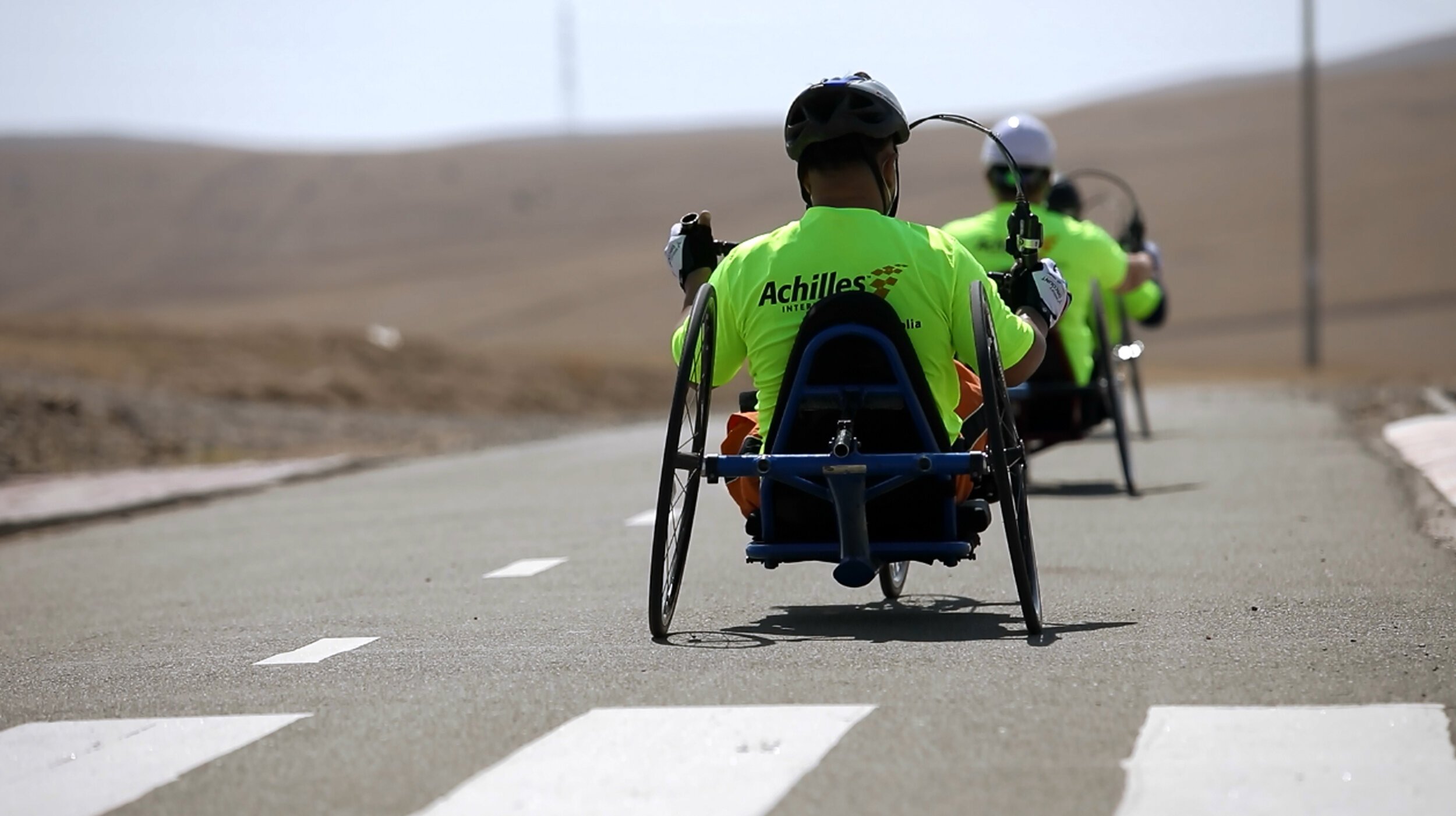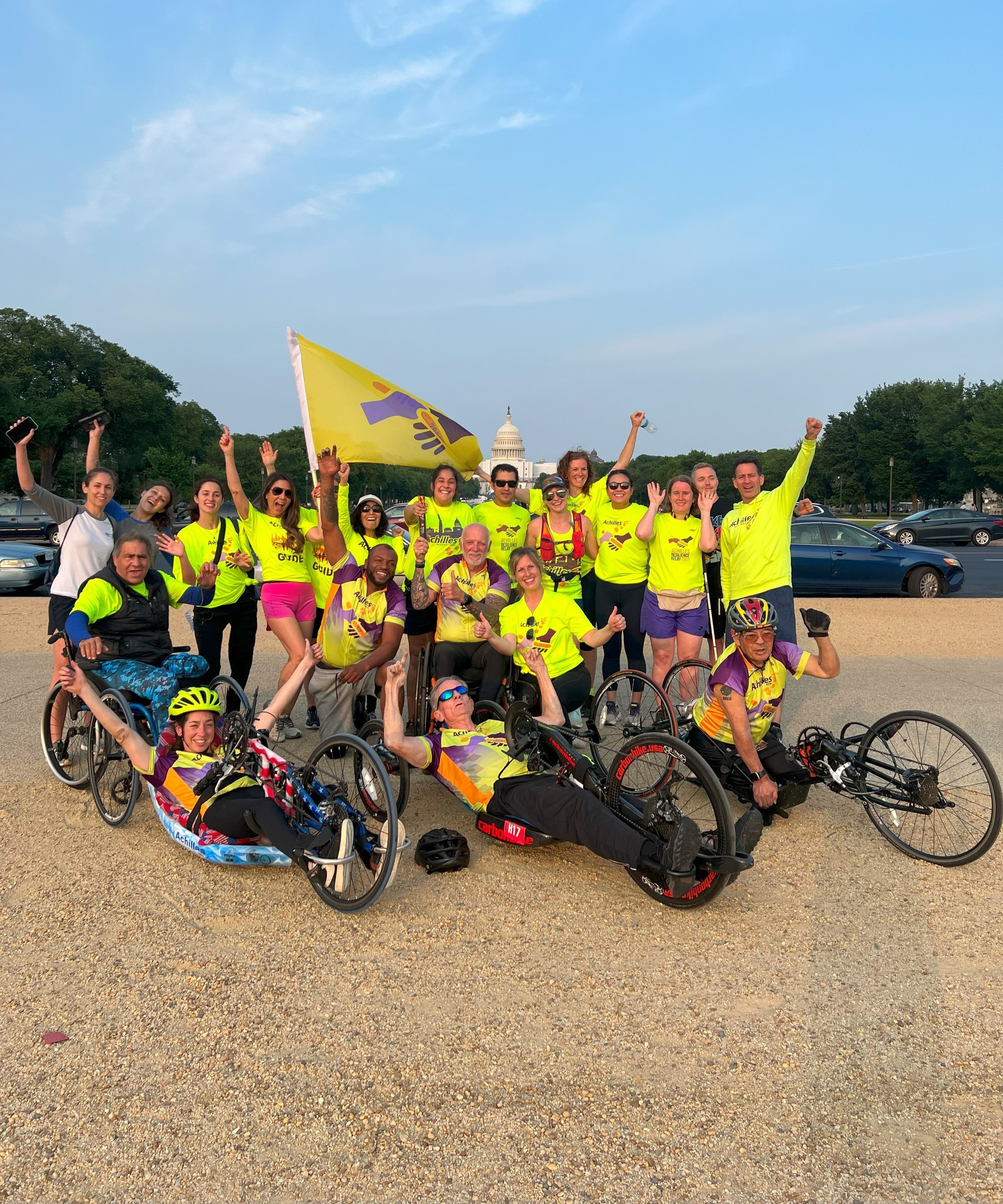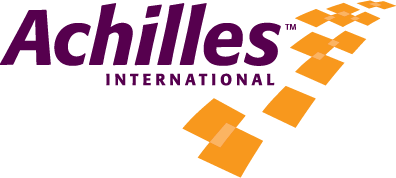
Achilles and Capital Bikeshare Adaptive Cycling Program
Thanks to support from Capital Bikeshare, Achilles International is expanding our Adaptive Cycling Program in Washington, D.C. We offer free, weekly adaptive cycling sessions providing access to equipment such as handcycles, tandem bikes and recumbent bike for people with disabilities, especially first time riders.
Sign up as an athlete with a disability or volunteer by selecting Washington D.C. as your chapter city.
There is no cost to participate in the program, however, reservations must be made in advance. Helmets are required at all times while cycling. Please bring your own helmet if possible, otherwise one will be provided for use during your ride. People living with disabilities can reserve equipment for recreational use. Please note, adaptive cycling equipment cannot be used for commuting elsewhere. Achilles staff and volunteer guides will be on-site to answer questions and help train new riders. For additional questions or local volunteer opportunities, contact James Murphy at jmurphy@achillesinternational.org.
*Please note, upon clicking the “Sign Up” or “Volunteer” buttons, you will be redirected and prompted to set up a free account via Rosterfy, our community management tool. You will then be asked to complete a free background check via our partner Sterling Volunteers, with an optional $15 cost. This ensures the safety of the entire Achilles community at all workouts and events. Once completed and approved, you will then receive an email confirmation and be able to login to your dashboard and register or volunteer for upcoming workouts.
HOW TO REGISTER
-

Wednesdays
6:30 PM - 8:30 PM
*Run/Walk workouts begin at 6:30 PM ET
Starbucks at 325 7th St. NW, Washington, DC 20004
-

Saturdays
8:30 AM -10:30 AM
*Run/Walk workouts begin at 8:30 AM
Starbucks at 325 7th St. NW, Washington, DC 20004
WHAT IS AN ADAPTIVE BIKE?
There are various types of adaptive bicycles designed for riders of varying abilities and needs. A handcycle allows riders who may have lower limb mobility impairments, such as amputation or paralysis, to propel forward using their arms. A tandem bicycle is designed for two riders, allowing a sighted pilot to guide a person who may be blind, living with low vision, or unable to safely navigate themselves.


